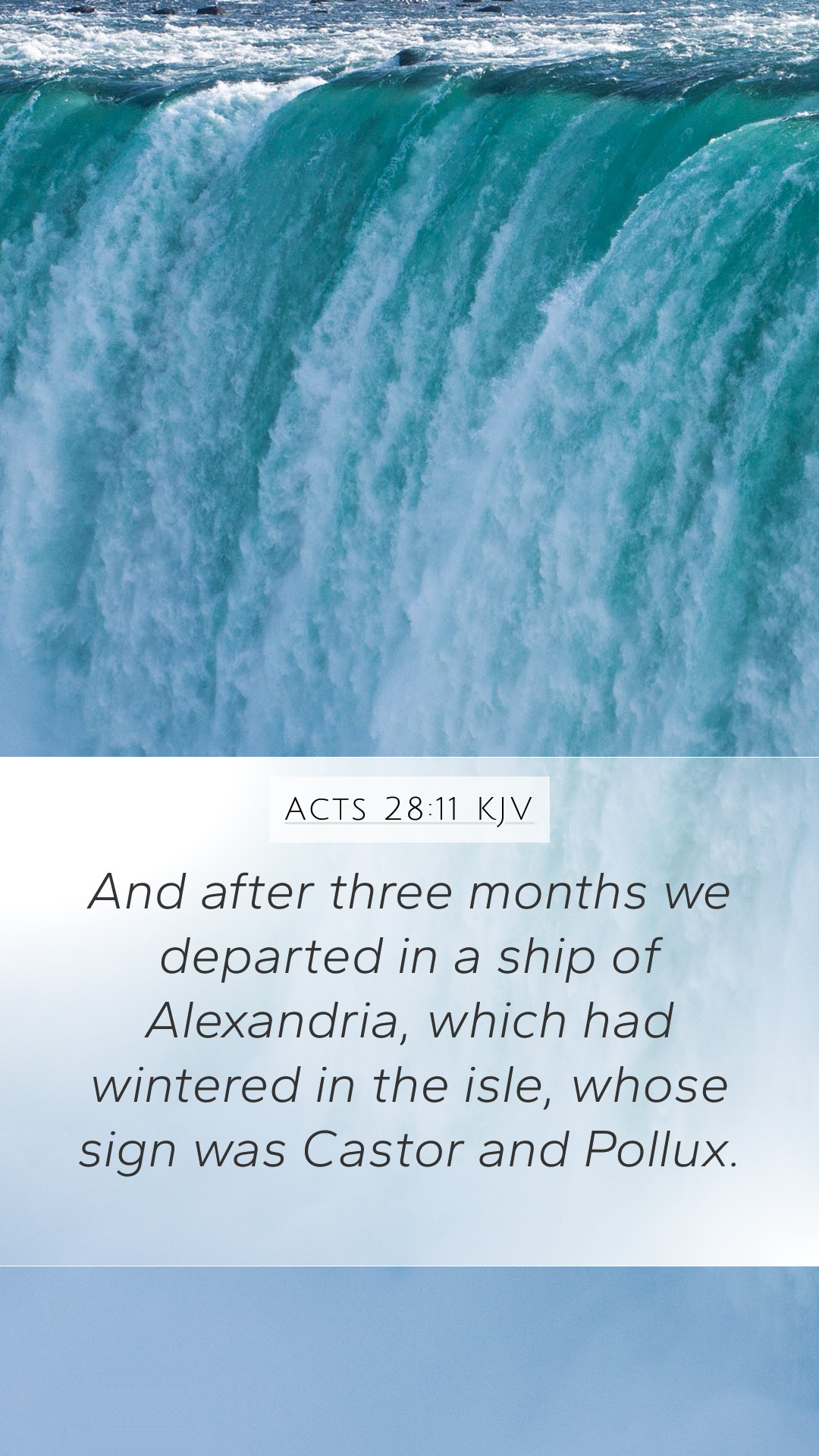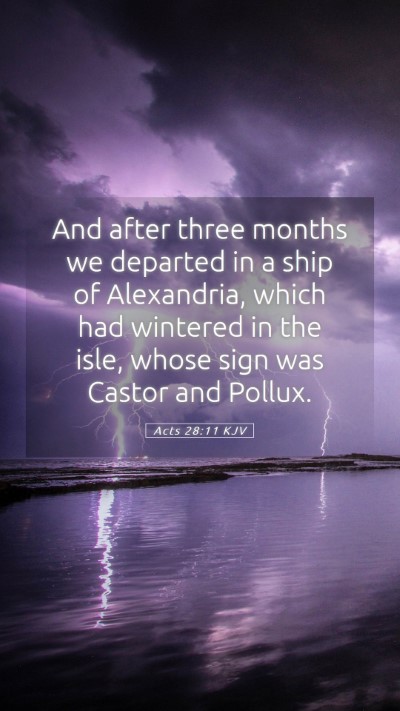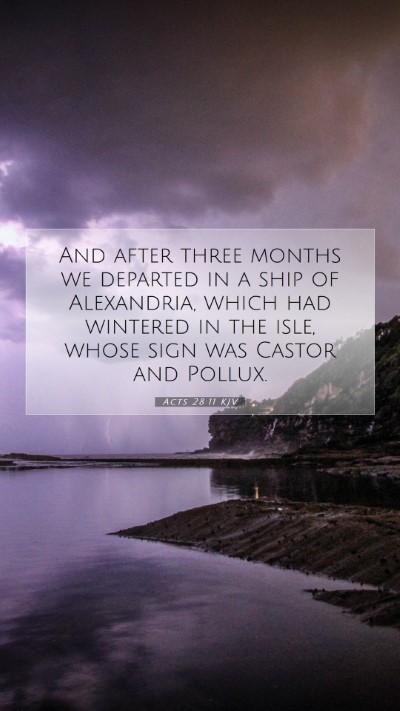Meaning and Interpretation of Acts 28:11
Acts 28:11 states: "After three months we departed in a ship of Alexandria, which had wintered in the isle, whose sign was Castor and Pollux." This verse serves as a concluding note in Luke's account of Paul's journey to Rome and encapsulates various significant themes, making it rich for analysis.
Overview of Context
This passage occurs at the end of the book of Acts, where Paul, having survived a shipwreck on the island of Malta, is now embarking on the final leg of his journey to Rome. The narrative setting provides a backdrop to understand the trials endured by Paul and the faithfulness of God in preserving his life through adversities.
Insights from Public Domain Commentaries
Matthew Henry's Commentary
Matthew Henry notes that Paul's journey was providentially arranged, indicating God's guidance even in precarious situations. He emphasizes that the ship named after the twin gods, Castor and Pollux, reflects the pagan culture of the time; however, God's presence was with Paul, suggesting that no matter the vessel, divine protection rests with His servant.
Albert Barnes' Commentary
Barnes offers an analysis of the historical context surrounding the reference to Castor and Pollux, whom he identifies as the mythical figures associated with navigation and protection at sea. He underscores that the ship symbolizes hope and safety for Paul and his companions, notwithstanding the superstitions of the world around them. Barnes also points to the fulfillment of God’s promise to Paul regarding his safe passage to Rome.
Adam Clarke's Commentary
Clarke delves into the details of the ship's journey and its significance. He mentions that the duration spent in Malta, three months, allowed Paul to establish a ministry during his stay, highlighting the opportunity to spread the Gospel even in isolation. Clarke ties the ship's name back to the themes of protection and providence, conveying that despite relying on a pagan ship, God was ultimately in control.
Key Themes and Interpretations
- Divine Providence: The journey highlights God's sovereignty even amidst human plans and disasters.
- Faithful Ministry: Paul's ministry continues despite his circumstances, illustrating that faith can thrive in adversity.
- Symbolism of the Vessel: The ship serves as a metaphor for God's guidance; even secular tools can serve divine purposes.
- Cross-Cultural Interaction: The name of the ship reflects the cultural environment within which Paul operated, showing the interplay between faith and culture.
- Historical Context: Understanding the political and social backdrop of the time enhances the interpretation of Paul’s experiences on this journey.
Application to Daily Life
This scripture can be applied by recognizing that God’s guidance can manifest in unexpected ways. Just as Paul relied on a ship symbolizing worldly protection, believers are encouraged to trust in God’s providential hand amid life’s storms.
Related Bible Cross References
- Acts 27:22-24: Paul reassures the crew of their safety through a divine promise.
- Isaiah 43:2: God promises to be with his people through trials.
- Philippians 1:6: Confidence in God's faithfulness to complete His work.
- Romans 8:28: God works all things for the good of those who love Him.
- Psalm 121:7-8: Assurance of God's protection in one’s journey.
Conclusion
Acts 28:11 encapsulates essential themes of faith, divine guidance, and the continuation of ministry despite trials. Through insights from prominent public domain commentaries, believers can deepen their understanding of this verse's significance. As one engages in bible study resources or online Bible study, they can apply the lessons drawn from Acts 28:11 in their own contexts, reflecting on the presence of God in every aspect of life.
This exploration of Acts 28:11 provides critical bible verse meaning, enabling readers to grow in their bible verse interpretation skills while recognizing the rich tapestry of God's work throughout history.


